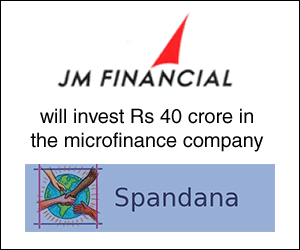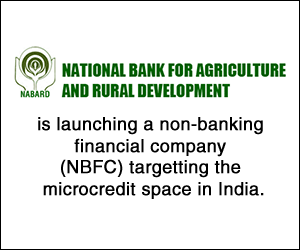The Economic Times, a division of the India Times, reports on the strength of the Indian microfinance industry, and its possible innovative role in the supply chain. Large companies like SHARE Microfin Limited, SKS, Basix and Spandana maintain vast customer networks. According to the MIX Market, the microfinance information clearinghouse, SHARE has 826,517 active borrowers, while SKS has 513,108. Basix reports 198,282 active borrowers, and Spandana, 916,261. Driven by the power of private equity investment, these companies hope to expand in the near future to over 5 million customers apiece. As reported by the Microcapital Monitor, in March of this year SKS received a private equity investment from Sequoia (a US-based private equity fund) and Unitus (a global microfinance accelerator) of USD 11.5 mn. To date, this had been the largest ever private equity investment in Indian microfinance. However, it was soon eclipsed by a USD 27 mn private investment to SHARE by Legatum (an international investment group) and Aavishkaar Goodwell (an India-based for-profit business development company). Although these insitutions aim to increase their reach in the interest of profit, this broad web of microloan consumers could be tapped for peddling insurance, money transfer, procurement and supply chain financing for agricultural and allied activities.
Continue reading “MICROCAPITAL STORY: Indian Microfinance Industry to Expand Outreach, Products, and Services”
 JM Financial India Fund, a private equity fund sponsored by JM Financial, an Indian financial services firm, and Old Lane Partners, a New York based hedge fund, will invest Rs40 crore (USD 10 million) in Spandana, a microfinance company based in Hyderabad, Andhra Pradesh.
JM Financial India Fund, a private equity fund sponsored by JM Financial, an Indian financial services firm, and Old Lane Partners, a New York based hedge fund, will invest Rs40 crore (USD 10 million) in Spandana, a microfinance company based in Hyderabad, Andhra Pradesh. 
 The National Bank for Agriculture and Rural Development of India (
The National Bank for Agriculture and Rural Development of India (
 The National Housing Bank
The National Housing Bank
 The International Development Association, the concessionary lending arm of the World Bank, approves a USD 63 mm credit to the Bihar Rural Livelihoods Project in
The International Development Association, the concessionary lending arm of the World Bank, approves a USD 63 mm credit to the Bihar Rural Livelihoods Project in 

 With its acquisition of Sangli Bank, a private lender based in Western India, ICICI Bank, the second largest bank in
With its acquisition of Sangli Bank, a private lender based in Western India, ICICI Bank, the second largest bank in